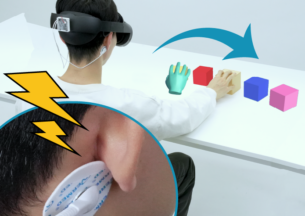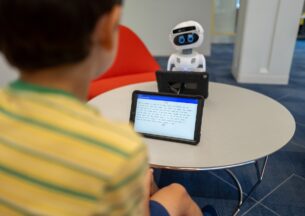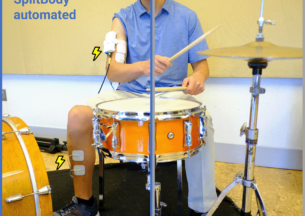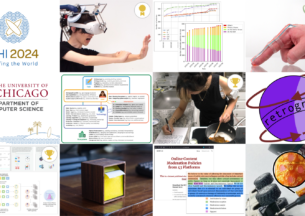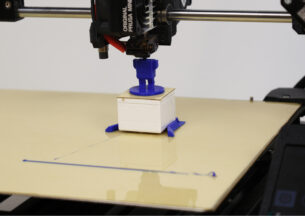Unveiling Attention Receipts: Tangible Reflections on Digital Consumption
In the age of digital dominance, where every click, swipe, and scroll vies for our attention, navigating the vast landscape of online content can feel like traversing an ever-shifting labyrinth. Among the myriad platforms seeking our attention, YouTube stands as a titan, its algorithms adeptly tailoring an endless stream of videos to captivate and enthrall. But what happens when our engagement becomes involuntary, when our attention is commodified and monetized without our full awareness?
Enter Anup Sathya, a second-year PhD student whose interdisciplinary journey through electronics, human-computer interaction, and computer science has led him to confront the intricate dance between technology and human agency. Advised by Assistant Professor Ken Nakagaki from AxLab, Anup embarked on a quest to demystify our digital consumption habits, ultimately birthing a tangible artifact that aims to disrupt the insidious cycles of attention manipulation: the Attention Receipts.
In their recent paper, “Attention Receipts,” Anup and his team explore a novel concept. At its core, Attention Receipts serve as material manifestations of our digital indulgences, aiming to make users more aware of the time they spend on the platform by turning their screen time into tangible receipts. Anup hopes that this shift from abstract to concrete will encourage people to reflect on how much attention they invest in digital content and its true value.
“The Internet is very useful, and at times invaluable,” said Sathya. “But at the same time, there are a lot of mechanisms that are meant to hold your attention so that it can be monetized. We wanted to figure out a way to make it obvious to consumers that they were actually paying with their attention.”
Platforms like YouTube, with their autoplay features and algorithmic recommendations, showcase this dilemma, trapping users in a cycle of endless consumption. Anup’s insight into the limitations of existing digital well-being tools inspired him to chart a new course. While conventional interventions often resort to restrictive measures that limit users’ freedom, Attention Receipts adopt a different approach—one grounded in reflection rather than restriction. By giving users control over their introspective process, Attention Receipts strive to promote a deeper awareness of digital habits without imposing overly harsh restrictions.
 The methodology behind Attention Receipts involves two main parts: a browser plugin and a stylish printer. The browser plugin quietly keeps track of the YouTube videos users watch and how long they spend on them. This information is then turned into physical receipts by the printer, adding a touch of style to serve as a reminder of one’s online activities.
The methodology behind Attention Receipts involves two main parts: a browser plugin and a stylish printer. The browser plugin quietly keeps track of the YouTube videos users watch and how long they spend on them. This information is then turned into physical receipts by the printer, adding a touch of style to serve as a reminder of one’s online activities.
In a field deployment involving six participants over three weeks, Anup and his team explored the efficacy of Attention Receipts in fostering mindful engagement with online content. The results yielded intriguing insights into the interplay between materiality, agency, and reflection. Participants exhibited varied responses based on their degree of control over the receipt generation process, shedding light on a form of cognitive dissonance when faced with their own digital habits and the nuanced dynamics of digital self-regulation.
“Essentially, when users had agency over printing the receipt, they liked the printer more, but they tended to reflect less on their YouTube usage,” said Sathya. “Conversely, when people didn’t have control over when the receipt was printed, they were able to reflect a little bit more and adjust their usage a little bit.” 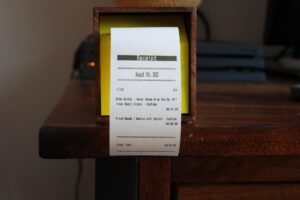
While quantitative assessments of behavioral change were not within the scope of this study, Anup emphasizes the qualitative significance of fostering a culture of introspection and accountability. By reframing digital consumption as a tangible transaction, Attention Receipts pave the way for nuanced conversations surrounding digital well-being—an imperative in an era marked by escalating concerns over technology’s encroachment upon human autonomy.
In the future, Anup sees Attention Receipts expanding beyond their initial stages to become more integrated into various aspects of digital life. This could include personalized features in everyday items and smooth integration across different platforms. However, amidst these possibilities, Anup emphasizes the importance of safeguarding user privacy and autonomy. He is dedicated to maintaining a careful balance between advancing technology and upholding ethical standards.
“Building and evaluating systems that act as interventions for technology overuse often requires the collection of deeply private data. So being deliberate about what we collect, how we use it, and how the user feels about it is really important.”




